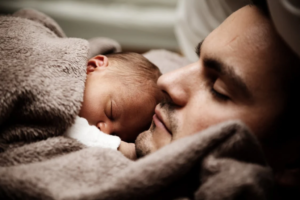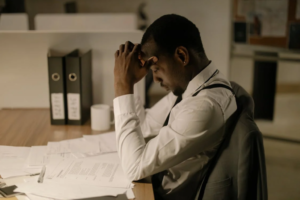Shocking Study Reveals Millennial Dads Are Breaking All the Parenting Rules!
Fatherhood is changing in ways that were once hard to imagine. Today’s dads are quietly but powerfully reshaping parenting, breaking old traditions, and taking on roles that used to be seen as just for moms. Millennial fathers, in particular, are changing expectations and influencing how families function.
Recent studies show that these dads are spending more time and energy on parenting than previous generations. But what’s driving this change? And what does it mean for the future?

Fatherhood today looks very different from a few decades ago. Modern dads are rejecting traditional roles and getting more involved in parenting than ever before. Research shows that millennial dads spend three times as much time with their kids compared to fathers in 1965. This shift highlights a move toward more equal parenting, where both parents share childcare and household duties.
Many millennial dads see parenting as a key part of who they are. A Pew Research Center study found that 57% of millennial fathers consider being a parent essential to their identity—almost as many as the 58% of mothers who feel the same way. This shows a commitment to doing things differently than past generations, where moms typically handled most of the parenting.

This shift isn’t just about attitudes—it’s about action. The biggest change is in how much time fathers spend with their kids. Millennial dads don’t just show up for school meetings or sports games; they take part in everyday tasks like bathing, feeding, and homework. Research from the Pew Research Center shows that today’s fathers spend an average of 8 hours per week on childcare, compared to just 2.5 hours in the 1960s.
By being more involved, these dads are showing that fatherhood is more than just providing for a family—it’s about being present and engaged. Their influence is shaping how children see family roles and fairness in the home.
Millennial fathers are focused on making the most of their time with their kids, not just spending more of it. They take on responsibilities like school drop-offs, bedtime routines, and weekend activities. This isn’t a passing trend—it’s a deeper commitment to hands-on parenting that strengthens families.

Remote work and flexible hours have helped dads play a bigger role in their children’s daily lives. The U.S. Census Bureau reported that 12.5% of workers worked remotely in 2023, up from 5.7% in 2019. This flexibility allows fathers to be more present, whether it’s for a school play or bedtime stories.
Still, not all fathers have this advantage. Many struggle to balance work with parenting. While millennial dads prioritize work-life balance, broader changes in workplace policies are needed to support all fathers.
Millennial dads are rewriting the rules of parenting. In the past, fathers were mainly seen as providers while moms took care of the children. Now, dads are sharing responsibilities—from midnight feedings to helping with homework. They’re proving that parenting is a partnership, not just a mother’s role.
This change isn’t just affecting individual families—it’s reshaping how people view fatherhood. More dads believe that parenting should be shared equally. This not only helps mothers but also strengthens the bond between fathers and their children, creating a more balanced family dynamic.

By getting involved in daily parenting, millennial dads are challenging old ideas about what it means to be a man. They’re showing that being a good dad isn’t just about making money—it’s about being emotionally connected to their children.
Famous dads like The Rock and John Legend have helped make this new kind of fatherhood more accepted. By sharing their parenting experiences on social media, they’ve encouraged other fathers to be more hands-on. This has helped break outdated ideas about masculinity and fatherhood.
One of the biggest ways millennial dads are making a difference is by pushing for and taking paternity leave. Research from Iceland shows that dads who take at least two weeks of paternity leave develop stronger bonds with their children.
In the U.S., paternity leave is still not widely available. However, 83% of millennial fathers say they would prefer to work for companies that offer strong parental leave policies, according to a survey by Ernst & Young. This shows a growing demand for equal time off for both parents.
Still, many fathers face challenges in taking paternity leave. The U.S. remains the only developed country without required paid parental leave. Even when companies offer paternity leave, it’s often not enough, and some workplaces still make men feel guilty for taking time off to care for their kids.
Even though millennial dads are more involved than ever, many struggle with “Dad Guilt.” A 2017 Pew Research study found that 50% of fathers wish they could spend more time with their kids but feel held back by work. Balancing career goals with family responsibilities is still a challenge, leaving many dads feeling torn.
Despite this, research from the American Psychological Association (APA) shows that fathers who are engaged in their children’s lives build stronger relationships with them and benefit mentally as well. A survey by the Thriving Center of Psychology found that 55% of millennials and Gen Z have gone to therapy, with 90% supporting the idea of therapy for everyone. This openness is helping to remove the stigma around men seeking help for mental health, making fatherhood a more fulfilling experience.
Millennial dads are making a lasting impact on fatherhood. Their commitment to spending more time with their kids, challenging traditional gender roles, and pushing for better parental leave policies is creating real change.
Even though there are still obstacles, such as outdated workplace expectations, this generation of fathers is leading the way for a more equal and involved approach to parenting.
This shift is not only changing individual families but also shaping future generations. As more dads embrace their role as active parents, fatherhood will continue to be seen as just as important as motherhood. While the journey toward parenting equality isn’t over, millennial dads are laying the foundation for a better future.
